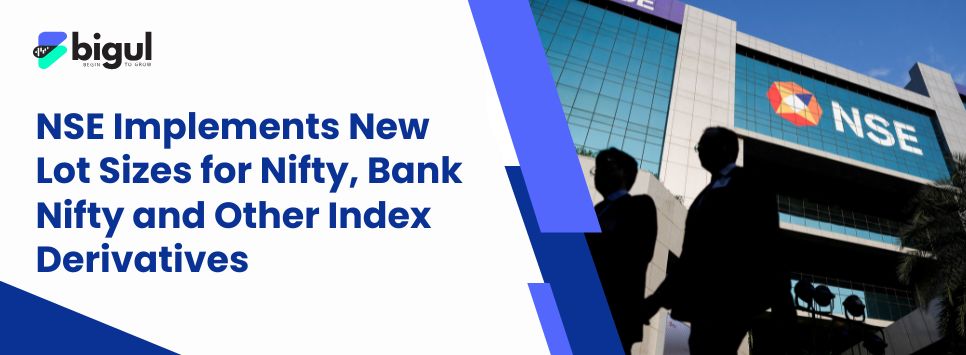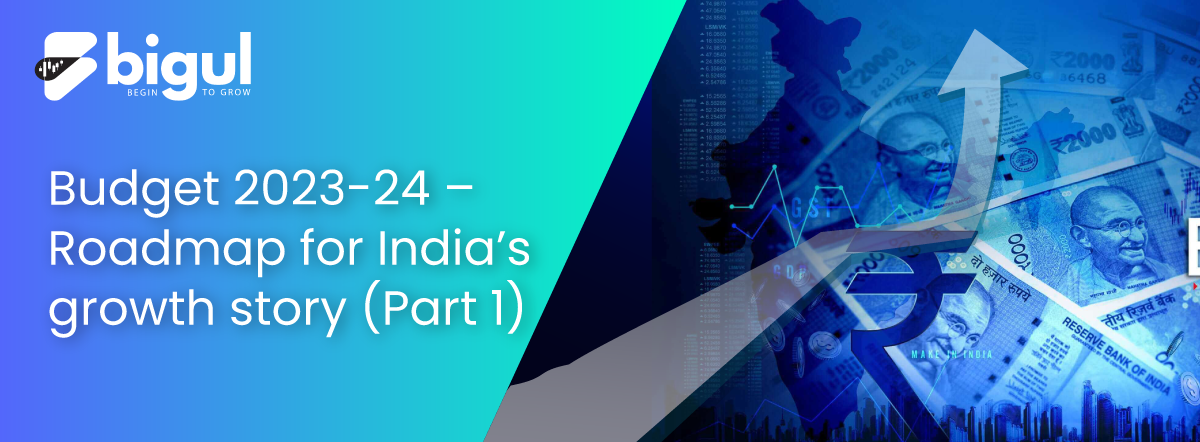In the ongoing month of February 2023, the domestic market participants were keeping a close eye on the UNION BUDGET 2023-2024 unleashed by our finance minister Nirmala Sitharaman on February 01, which was broadly welcomed by the market and the industry. The finance minister has adopted seven policies, namely:
- Inclusive Development
- Last Mile Connectivity
- Infrastructure and Investment
- Unleashed Potential
- Green Growth
- Youth Power
- Financial Sector.
In the Union Budget 2023-24, the central government has given a roadmap for the next 25 years. The Budget has prioritized 5 points: Automobiles, Jewellery, FMCG, Banking, metal, infrastructure, Cement, capital goods, and a few other sectors, which will reach the last mile.
Let us discuss one by one the various sectors and their related announcement in detail:
- Automobile Sector:
For any economy to flourish, the first sector to be boosted will be the Automobile sector which will set the tone for the all-around development of the country’s infrastructure. This sector gives huge direct and indirect employment to a large section of the working class. In the budget speech read by the Honourable Finance Minister, there were some good announcements concerning the Auto sector, and below are details of the same:
- With a major boost to the Electric Vehicle segment, the Battery Energy Storage System (BESS) with a limit of 4,000 MWH will be upheld with Feasibility Hole Financing. This will have a positive long-term impact on the battery sector servicing the Auto companies.
- Also, the obligations on determined capital products and hardware for assembling lithium-particle cells for EV batteries extended to one year. This will be the second step to enhance the production of Lithium batteries for EVs.
- This will also be positive for the Commercial Vehicles segment which is still under the lackluster stage concerning EVs and will also support local assembly of electric vehicles over fully or partially constructed EV imports.
- The finance minister has also allocated funds for the scrapping of the old government vehicles, including ambulances which is positive for the sector.
- The minister said the 100 critical transport infrastructure projects for last and first-mile connectivity be a big booster for the Auto sector.
- Banking Sector:
FM has announced a revamped credit guarantees scheme with an outlay of 9000cr for micro and small and medium enterprises, and these changes will be effective 1at April 2023 onwards. Through this scheme, the government has infused Rs 9000 crore into the fund’s corpus, enabling an additional credit guarantee of Rs 2 lakh crore. Furthermore, the interest rates have been reduced by 1% which will beneficial for benefiting the MSMEs during the high inflation times.
FM, in her speech, said that the vision for Amri kaal includes a technology-driven and knowledge-based economy with a strong financial sector and public finances. Based on this, various objective steps have been announced, which include:
- Common Business Identifier: PAN will be used as a common identifier for all digital systems of government agencies. This will promote ease of doing business.
- The KYC process will be simplified and, finally, a national financial information registry will be set up to serve as the central repository of financial and ancillary information. The June 2018 monetary policy of the RBI announced the establishment of a Public Credit Registry.
- Digital Public Infrastructure for Agriculture: Digital public infrastructure will be built as open source. This will help in inclusive and farmer-centric solutions.
- Entity DigiLocker will be set up for use by MSME, large businesses, and Charitable Trusts.
Above mentioned are the two critical sector synopses, which are the government’s key focus areas for your reference and quick guide with respect to the Budget. We will release the second part of this blog, in short, a short time frame.




.jpg)





.jpg)
